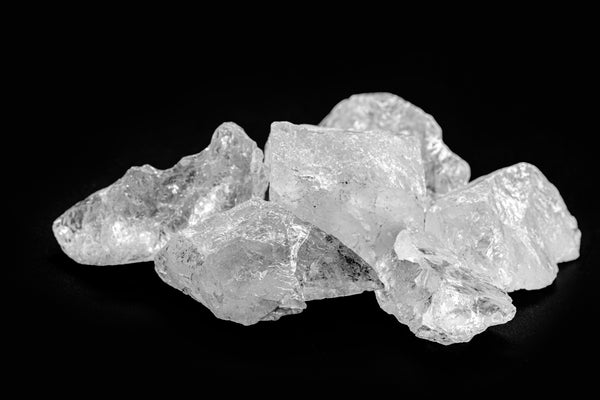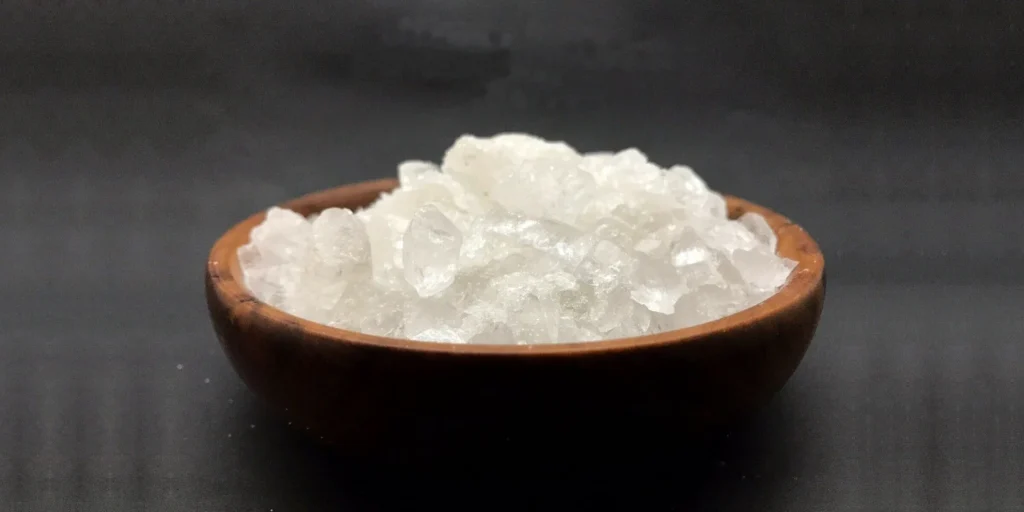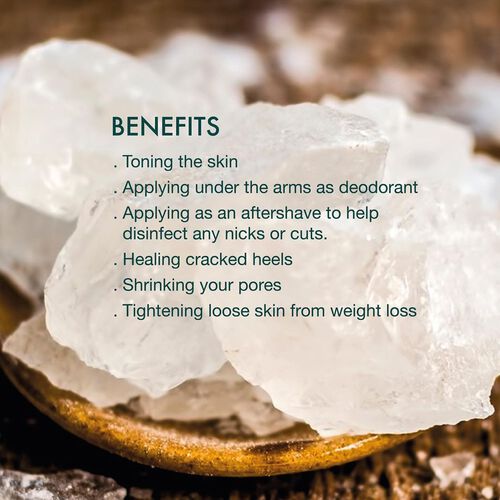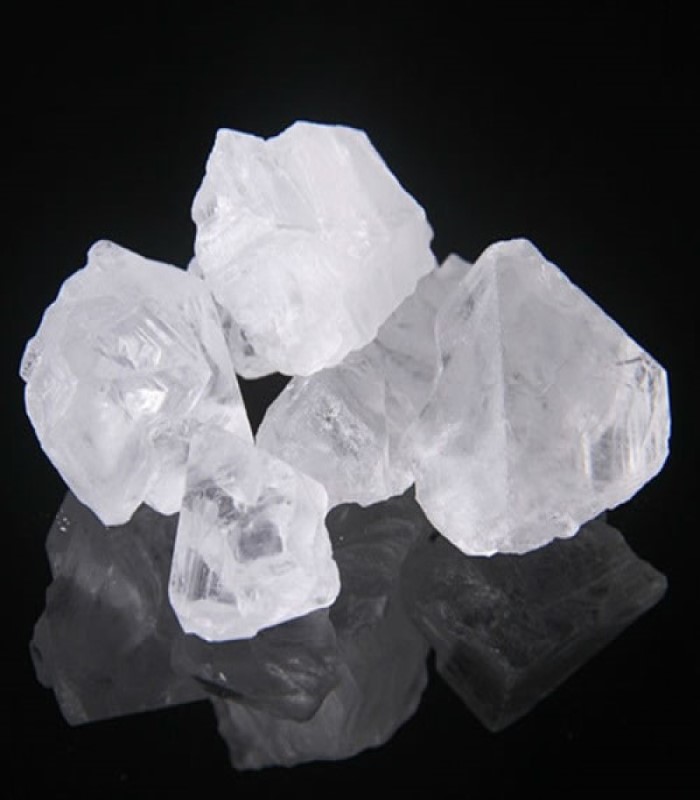
What is Alum?
Phitkari, in English, is also known as “alum.” It is a colorless and transparent substance found in the form of crystals or a granulated powder. It is commonly formed from water molecules, aluminum, or other metals and sulphates. The chemical formula for alum is XAl(SO4)2·12H2O, and it occurs as minerals such as alunite and leucite.
Types of Alum Stone
Soda Alum
Also known as sodium alum or SAS, it is commonly found in baking powder and acts as an acidulant in food. The chemical name of this alum is sodium aluminium sulphate. It is found in white crystal form and smells metallic.
Potash Alum
In its single form, alum is also known as potassium alum or potash alum. The common alum we use is potassium alum, which occurs in white crystal form and has the smell of metallic water. It can be used to clean water.
Chrome Alum
Chrome alum, also known as chromium alum, is commonly found in purple crystal form and smells of metallic water. It is usually used in leather-making processes.
Ammonium Alum
Also known as ammonium sulphate alum or AAS, this type of alum also exists in white crystal form. Its chemical formula is NH3Al (SO4)2·12H2O and is mostly used in after-shave and hygiene products.
Selenate Alum
Selenate alum is different as selenium takes the place of Sulphur here; thus, it has the property of being a strong oxidizing agent. Selenate alum is commonly found in antiseptics to avoid infections.

Forms of Alum
- Crystals: Used for direct application to wounds or as a water purifier.
- Powder: Used in formulations for skin care or oral health.
- Solution: Sometimes used in mouthwashes or other treatments
Health Benefits of White Alum
There are several health benefits of alum, some of them are described below
Skin Health
The traditional alum powder uses for skin is known to give relief in minor cuts and wounds; that is why alum is present in most antiseptic creams. Moreover, alum is also beneficial in treating skin infections like boils, impetigo and furuncles. Its antifungal properties are also known to treat vaginal infections such as candidiasis.
Alum Bath Benefits for Swelling
If you sustain any sprain or swelling due to minor injury, then bathing in alum water can help in reducing it. The anti-inflammatory properties of alum help in reducing swelling in the affected body parts.
Alum Water Benefits for Obesity

Some recent studies have shown that high potassium consumption induces weight loss and increases serum triglyceride levels, high-density lipoprotein and plasma cholesterol. Reducing body weight in test subjects using potash alum results in decreased blood concentrations and visceral fat mass.
Alum Benefits for Tumors
Alum is a type of aluminium salt that has been used as an adjuvant vaccine to enhance the body’s immune response to vaccines. Theoretically, this same mechanism might enhance the body’s immune response to cancer cells, which can potentially help in reducing tumor growth or eliminate cancer cells.
Oral Health
Alum can be beneficial for oral health due to its antimicrobial and astringent properties. It helps alleviate discomfort from mouth ulcers, sore gums, and throat infections by reducing pain, inflammation, and bacterial growth. Alum can be applied directly to sores or used as a rinse for sore gums and throats. However, it should be used cautiously, with proper concentration, and consulting a healthcare provider is recommended before use.
Preventing Bad Breath
Alum can help alleviate bad breath due to its antibacterial properties, which reduce the bacteria responsible for the odor. Using a mouth rinse made from a diluted alum solution can effectively cleanse the mouth and freshen breath. Its astringent nature also contributes to a cleaner feeling in the mouth. However, it should be used in conjunction with regular oral hygiene practices for best results.
Canker Sore Relief
Alum can provide relief from canker sores due to its astringent and antimicrobial properties. Applying a small amount of alum powder directly to the sore helps reduce pain, inflammation, and promotes faster healing. The astringent effect of alum helps tighten the tissue around the sore, which can alleviate discomfort and support the healing process. However, it’s important to use alum cautiously and consult a healthcare provider if the sore persists or if there are concerns about its use.

Strengthening Teeth
Alum can contribute to strengthening teeth and gums due to its astringent properties. When used in oral care routines, such as rinsing with a diluted alum solution, it can help tighten and firm up gum tissues, which supports overall dental health. This tightening effect may enhance gum resilience and contribute to the stability of teeth. However, alum should be used cautiously and not as a substitute for regular brushing, flossing, and professional dental care. Consulting with a healthcare provider or dentist is advisable for personalized advice on maintaining strong and healthy teeth and gums.
Side Effects
While alum can offer various benefits, it is important to be aware of potential side effects:
- Irritation
- Dryness
- Sensitivity
- Digestive Issues
- Toxicity




